11 Ways To Create More Space In Your Recycling Bin

Recycling is a great way to help reduce your carbon footprint and create less waste. Recycling has become more important than ever, and many companies are switching to recyclable materials. With this latest recycling revolution, however, it can be increasingly difficult to fit all your recyclable items into one bin each week.
To create more space in your recycling bin, flatten and stack your cardboard boxes together with stacked papers. Crush aluminum cans, and place smaller plastic items inside larger ones. You can crush and minimize plastic milk jugs by adding very hot water, and try reusing large plastic containers. If you recycle more than the average household, ask your municipality for a larger bin, or a second bin.
If you frequently find yourself with an overflowing recycling bin, you should know that there are ways to change and prevent this curbside headache from happening each week. Whether you have cardboard flying into your neighbor’s yard, or end up leaving a trail of aluminum cans every time you bring out your recycling bin, then you need to try some of these top tips for creating more space in your recycling bin.
11 Top Tips For Creating More Space In Your Recycle Bin
1. Flatten And Stack All Cardboard Boxes
Cardboard is one recyclable item that can take up a lot of space in your recycle bin if you let it. Nowadays, people shop online more than ever. Online shopping is very convenient, but it usually involves a lot of cardboard boxes that you wouldn't regularly bring into your home.
To help minimize the amount of space cardboard takes in your bin, you first should break down the boxes.
Next, stack all of it, and place it on the bottom of the bin so it doesn’t fly away.
Contact your local recycling center, as you may be able to stack and tie your cardboard and place it next to the bin. If you can remove all the cardboard from your bin, this will free up a lot of space each week.
2. Crush Aluminum Cans
Aluminum cans can also take up a lot more space in your recycling bin than necessary. If you drink a lot of soda or beer, then you know all too well that a recycling bin can easily fill up and overflow with cans.
One great way to minimize the amount of space aluminum cans take up in your bin is to crush them. You can invest in a can crusher if you use a lot of canned goods.
Alternatively, you can use a sturdy shoe like a worker’s boot and crush them with your foot. This is a fun way to take out your aggression while making more room in your recycling bin.
3. Pour Hot Water In Milk Jugs And Crush Them
If your household is big on dairy, and milk in particular, then you know that half-gallon and one-gallon milk jugs can take up a lot of space in your recycling bin. The good news is that these plastic jugs can shrink significantly by performing a simple trick.
Take your empty and rinsed-out milk container and place it in your sink. Add half a cup of steaming or boiling water. Be careful not to burn yourself. Swirl the water around, and then carefully empty the water out it after a few seconds. Next, you can crush the milk jug. The heat will make the plastic weak and pliable, resulting in a significantly smaller jug.
4. Separate Cans You Can Redeem For Money
Recycling is good for the environment, but remember, it can also be good for your wallet. In many regions, you can get money for your recycling materials. Many aluminum, glass, and plastic cans come with a deposit fee.
When possible, separate all these cans, so you can redeem them for money. This will also free up plenty of space in your recycling bin. Remember, certain metals can also earn you money, so before tossing out lots of aluminum, iron, or especially copper, see if a scrap metal yard or recycling facility will pay you for them.
5. Use Large Plastic Containers to Make A DIY Container Garden
Sometimes it is large and bulky plastic items that take up a lot of space in a recycling bin. Buckets and bins that house pool chemicals, or wholesale-sized merchandise can be almost as large as your recycling bin.
Instead of tossing these large containers in the bin, you should try using them as planters for a DIY container garden. Container gardens are a very easy and affordable way to grow herbs and flowers. Using plastic containers is a great way to cut down on your container garden’s costs. You can paint or cover these containers to make them look more appealing, all while reusing plastic items.
6. Pile Papers On Top Of Cardboard On The Bottom Of The Bin
There are many common household items you can recycle, and paper is one of them. The problem is paper often gets crumpled up, and in turn, it takes up more space than necessary. Instead of crumpling these papers up, stack them neatly.
On the night you bring your recycling out, put this stack of papers on top of your stacked cardboard at the bottom of your bin. This will help save space and also prevent the lightweight paper from flying into your neighbor’s yard.
7. Bring Bulky And Extra Recycling To A Local Recycle Center
If you have a bulky or specialty item to recycle, then you should take the time to visit your local recycling center. Recycling centers are a great place to become familiar with. They are often the place where you take larger appliances, as well as where you go when you have large amounts of recycling to get rid of.
8. Actively Buy More Reusable Products
One way to make more space in your recycling bin is to buy more reusable products. In addition to many companies switching to recyclable packaging, many also opt for reusable containers. When possible, buy reusable packaging. This is a fantastic way to cut down on waste, and it will leave more space in your recycling bin for disposable packaging.
9. Save Your Glass Jars For Later Use
Glass is not as common as it once was, but many pasta sauces and pickled items still come in glass jars. Since glass jars have become less available, consider saving them. Glass yogurt containers and jelly jars can make great small cups. They can also act as vessels for homemade candles or other DIY projects.
10. Put Large Items At The Bottom And Fill With Smaller Ones
When it comes to making more space in your recycling bin each week, smart organization goes a long way. Try placing smaller items inside larger ones. If you have a large plastic container that was used to store salad greens, fill it with smaller plastic, metal, and cardboard containers. This helps consolidate your limited recycling space.
11. Ask The Municipality For A Second Bin
If you find that no matter how hard you try to organize your bin, and no matter how many cans you smash, you still have an overflowing recycling bin, then consider asking for a second bin. Many municipalities will happily offer you a second bin. Some may charge for a second one, but the fee is usually not too high. Alternatively, some municipalities will offer you a larger bin. A second or larger bin will make it much easier for anyone who constantly has one overflowing bin.
Summing Up How To Create More Space In Your Recycling Bin
Recycling is important, and it's a practice that you shouldn't dread doing. Therefore, if you find yourself constantly dealing with an overflowing recycling bin, you should take action so recycling isn’t a constant headache.
Make sure you break down and stack your cardboard boxes, and crush your aluminum cans. Reuse your glass jars. You can even reuse your large plastic containers as planters in a container garden. When all else fails, reach out to your municipality and ask for a larger or second recycling bin.
Related Guides:
- 13 Household Items You Probably Didn’t Know You Can Recycle
- Can You Recycle Boxes With Tape? (Find Out Now!)
- Can You Recycle Door Knobs? (Find Out Now!)

Tom Gaffey is an expert writer who currently resides in Washington D.C. Tom has a passion for real estate and home improvement writing, as well as travel and lifestyle writing. He lived the last twelve years in Hawaii where he worked closely with luxury resorts and event planners, mastering his knowledge of aesthetics and luxury products. This is where he found his passion for home improvement and a keen interest in DIY projects. Currently, Tom resides in Washington D.C, and also working on his debut fiction novel.
More by Tom Gaffey










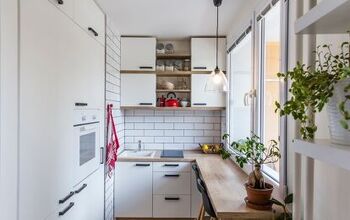


![How Much Weight Can a 4×4 Support Horizontally? [It Depends!]](https://cdn-fastly.upgradedhome.com/media/2023/07/31/9070333/how-much-weight-can-a-44-support-horizontally-it-depends.jpg?size=350x220)
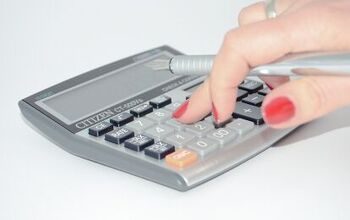
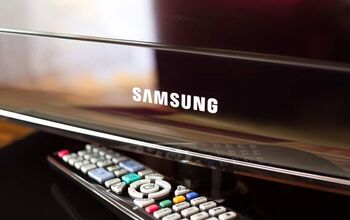

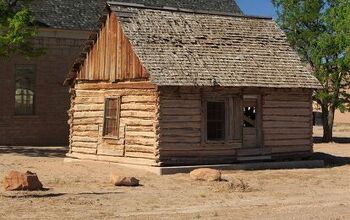
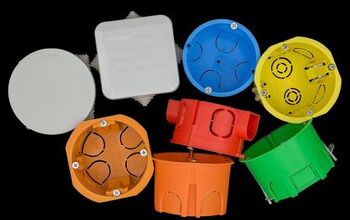

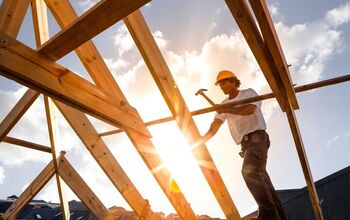

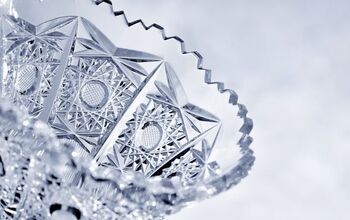
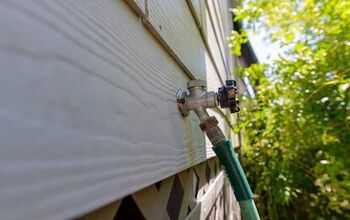


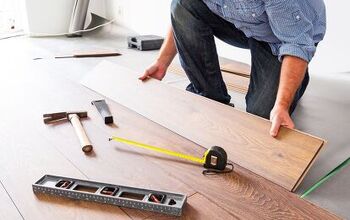
![12 Washing Machine Brands to Avoid [with Recall Data]](https://cdn-fastly.upgradedhome.com/media/2023/07/31/9075781/12-washing-machine-brands-to-avoid-with-recall-data.jpg?size=350x220)